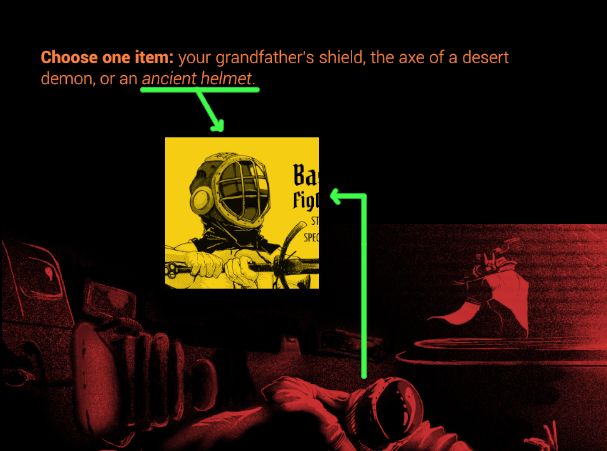Weird Fantasy 2: Implied setting
On part 1, I mentioned how "unexpected" is distinctly different from "mystery", and although both service the Weird, I think that mystery usually gets underrepresented in TTRPGs writing. The standardized format of presenting a TTRPG setting is to create an encyclopedic expository text describing the inner workings of the fictional world, which doesn't leave much space (quite literally) for mystery.
The way that I found worked best for me is: implied setting.
Of course, implied setting is not new, it is as old as the hobby itself; for Noctis Labyrinth my main source of inspiration was John Harper's Ghost Lines. Each line of that game packs a mean punch, because its full text imply some deeper inner workings that can be extrapolated and explored at the table without adding to the text-load.
Ideally, my goal became to present a world where the unknown for the players is everyday for the characters. This creates a Mystery for the players that queues the table to feel intrigued, and to push towards exploring and discovering the setting through their characters. To present information that poses questions to be answered through play.
As far as I'm concerning, the introduction of Mystery in an exploration games engages the player's want to connect dots, which to me is a more ludic way to look at TTRPG settings: instead of creating a dense world for them to discover, you introduce a series of thinly connected specific details, separate them with a fruitful void, and see how it plays out at the table.
To give an example straight out of Noctis Labyrinth: there's no explanation why there are Greco-Roman gods present in the world of Noctis Labyrinth, and why the last bastion of humanity is named after one of them—Cardea (who is also a spirit a Wizard character can invoke); after some adventuring, the players may explore a crashed aethership (one of the ruins of the ancient civilization that populated the Labyrinth), and inside, commune with the Ghost in the Machine to access one of the audio logs the ancients kept: among those clips, the nameless captain of the aethership recorded how Cardea manifested in front of the shipwrecked travelers, promising to lead them outside the Labyrinth. The captain also notes that, initially, it's only Father Marcus the only crewmember who can translate the goddess' speech to the rest of the crew.
How do Greco-Roman gods relate to the city of Cardea, how the city of Cardea relates to the elder civilization of the Labyrinth, how the people of the Labyrinth used the aetherships, what relationship they had with Cardea, and why was Father Marcus the only one to understand the goddess, are all questions that will only find an answer at the table.
Like I mentioned last time, these aspects of worldbuilding aren't limited to text, and placing specific details on an illustration is a subtle way to introduce dots for the players to connect, and non-textual narratives to be woven through the pages.

The Weird Fantasy nature of Noctis Labyrinth may be bizarre, or even gonzo, but it's not random. There's a wider world beyond it's pages, a world that may very much just live inside my head, but has filtered through the text. Now, I don't have any pretenses that you will discover that world, quite the opposite, I'd love to hear the unique ways those weird little dots got connected at your table. What I do want is—by intentionally withdrawing expository text—to create a fruitful void that both implies the existence of a deeper setting, and gives enough meat for the players to chew and grow their own setting on.
Get Noctis Labyrinth
Noctis Labyrinth
A Weird adventure for World of Dungeons
| Status | Released |
| Category | Physical game |
| Author | MRDR HOBO |
| Genre | Adventure, Role Playing |
| Tags | Dungeon Crawler, Fantasy, low-prep, OSR, PbtA, rpglatam, Sandbox, weird |
More posts
- Weird Fantasy 4: the WeirdDec 18, 2023
- Everything's Design 3: Powered by the ApocalypseDec 16, 2022
- Weird Fantasy 3: Science-Fantasy & Gonzo playNov 27, 2022
- Everything's Design 2: UnderwrittenSep 17, 2022
- Everything's Design 1: IllustrationAug 02, 2022
- Weird Fantasy 1 A Dialog with Anti-CanonJul 23, 2022

Comments
Log in with itch.io to leave a comment.
If you ever did want to walk the streets of Cardea, you know I'd cheer it!